As a Filipina nearing my thirties, there are certain universal truths I’ve come to realize.
I’ve learned that nobody was born woke and people are complicated.
I’ve learned that no matter the occasion, you should always pack tupperware just in case there’s baon.
And I’ve learned that just because Filipino families may not say the words ‘I love you’, it doesn’t mean they don’t. I’ve learned to listen instead for the words that go unspoken. For my family’s own secret love language.
This was a lesson that took me a long time to understand.
Back when I was still in university, a twenty something living on her own for the first time, I remember feeling so free. Here I was, doing my own groceries! Learning how to cook eggs and do laundry! And trying to find myself among a sea of lost and confused youth. A crowd of pumpkin spice lattes and plaid sweaters served as the backdrop for my search for self.
I remember how jarring it was to reconcile my newfound independence with my family life back in Toronto. After one morning of submitting a research paper, meeting with my professors, and even leading a strategy meeting with a team of volunteers, I felt limitless and untethered.
Then my phone rings. It’s my mom.
“Hi mom,” I respond, excited to share what I’ve been up to.
“Hi Gelaine,” my mom begins. “How are you? Are you eating? Did you remember to drink water today?”
“Yes mom,” I roll my eyes. “I know how to drink water.”
Our conversations back then were often terse. My mom was always too worried to listen, and I was always too annoyed to hold a conversation for long.
I reflect now and I realize those phone calls were love letters disguised in parental concern. That my mom’s silly questions were excuses to speak and feel connected. That my parents, though loving and kind and generous, were not well versed in expressing their love and generosity. At least, I was not yet well versed in listening.
The language of love transcends words and regions, and I’ve become infatuated over the years with documenting its various shapes and forms.
I reached out to our community to ask for their stories and how their Filipino families expressed love without saying it.
Here’s what they shared:
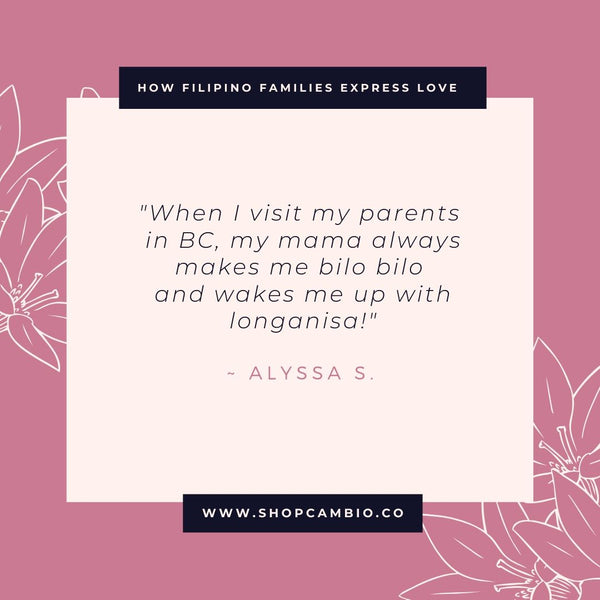
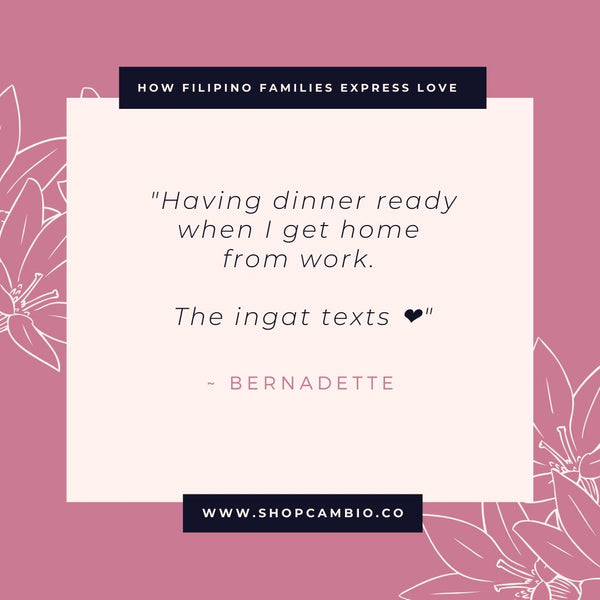

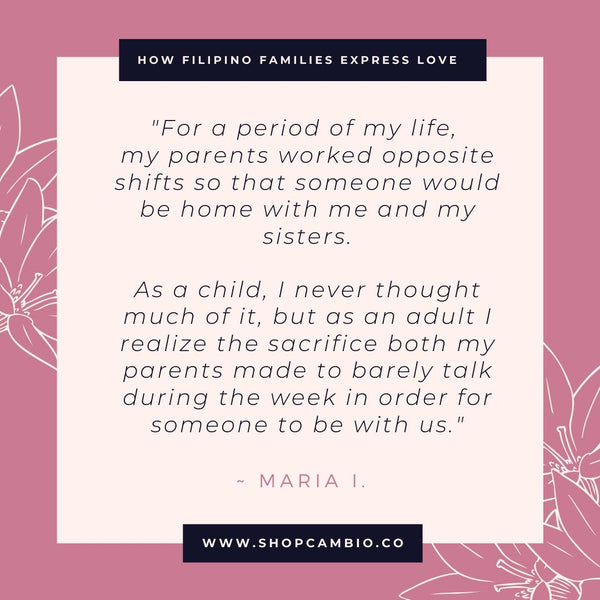
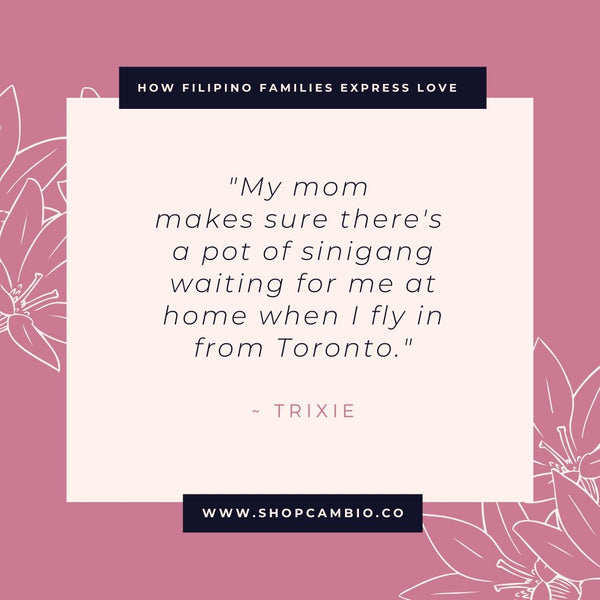

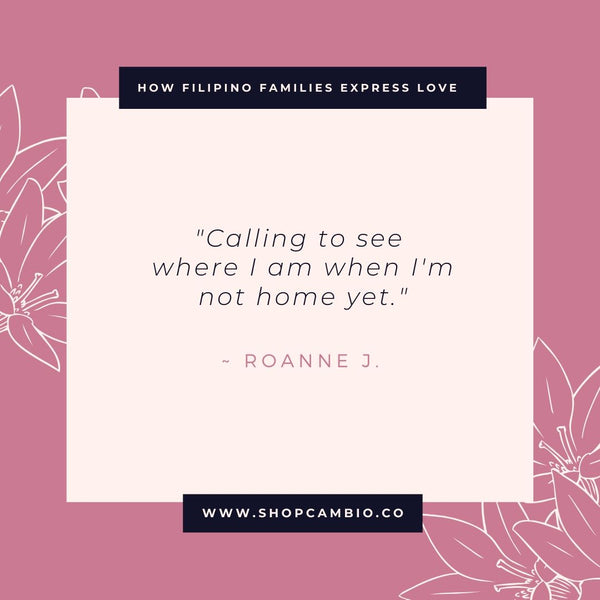
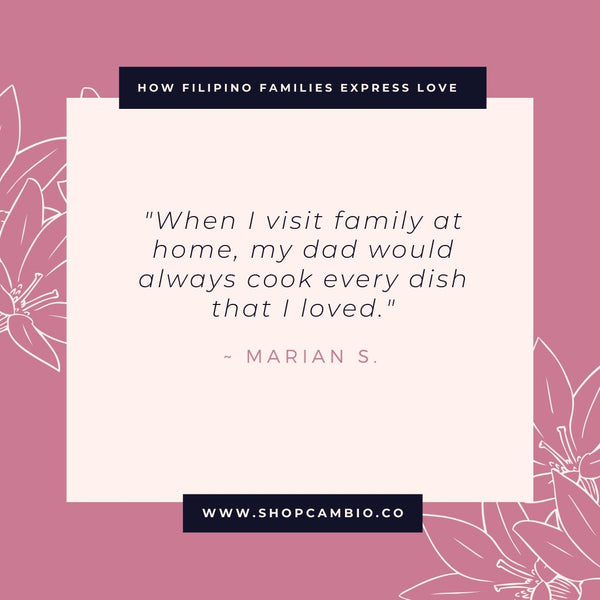
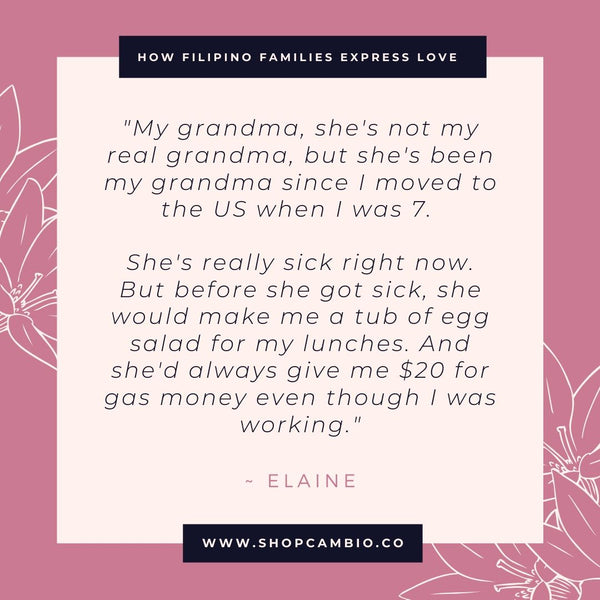
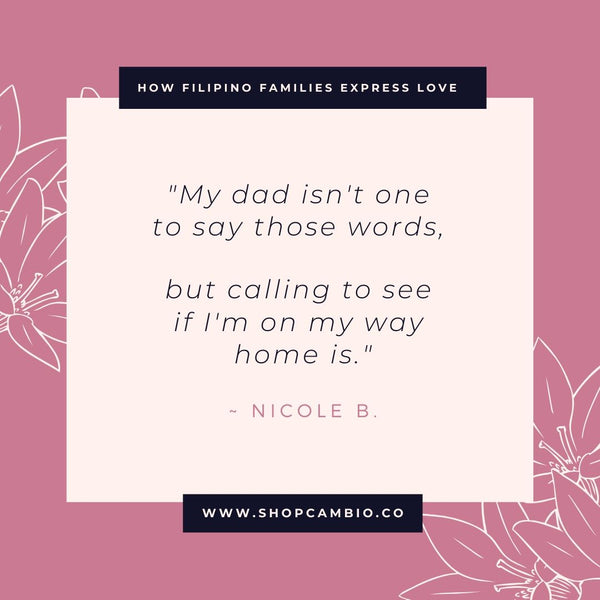
Stories like these are touching, but they aren’t rare. They play out often in Filipino and non-Filipino households.
Each of our families have our own love languages, forms of expressing love without ever having to say the words. We each have to learn to listen for it. And respond in return.
How do you express love and care in your Filipino family? When did you come to understand your family’s love language?
*Photo by Eiliv-Sonas Aceron on Unsplash
Gelaine Santiago

Gelaine is a social entrepreneur, an online storyteller, and a passionate advocate for diversity and ethics in business. She’s the co-founder of Cambio & Co., an e-commerce fashion company working with Filipino artisans to celebrate Filipino craftsmanship, culture, and heritage. Gelaine is also one of the founders of Sinta & Co., the world’s first conscious Filipino wedding boutique. She was named one of RBC’s Top 25 Canadian Immigrants of 2019. Find her on Instagram @gelainesantiago and www.gelainesantiago.com



Loved your message, it just confirms my thoughts exactly. Our family love languages are actions and not words. Sacrifices and care for each other, the services that we do in the family. And ultimately we extend them to people outside our family circle to our friends and beyond. That makes us truly special as a Nation as a Community and as a family. I pray that we would never change.
Leave a comment